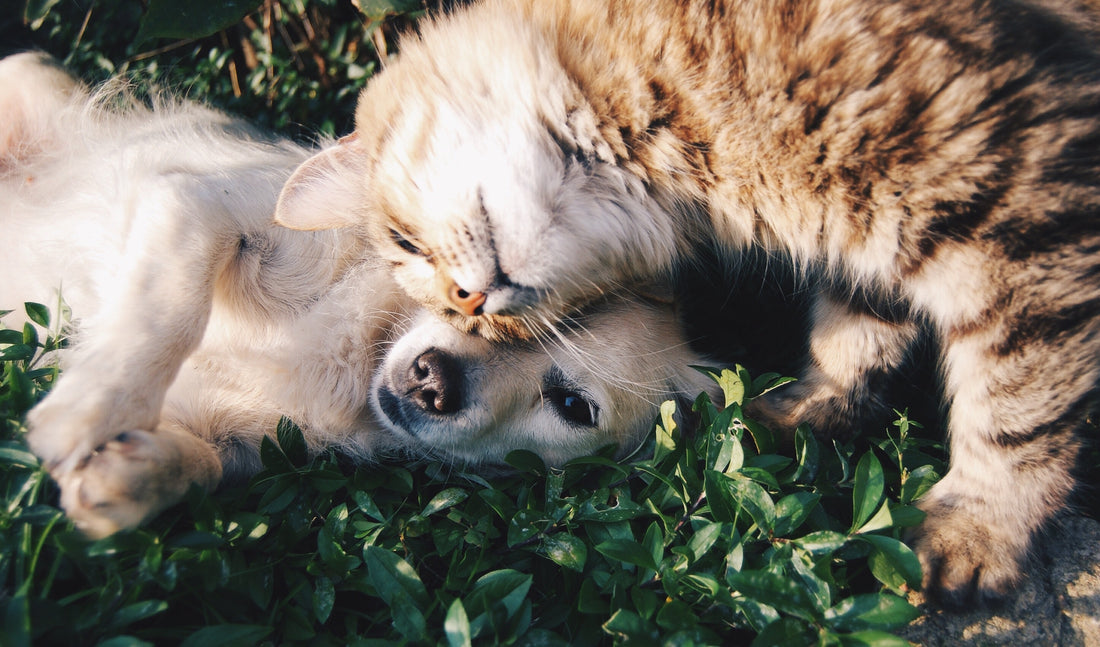
Dogs bark; it’s simply a fact of life. However, some dog breeds bark more than others or are more vocal towards stimulus that other breeds easily ignore.
For example, many dog owners have experienced their dog barking at a cat, whether it’s a stray cat they encounter on a walk or another pet living in your home.
Confused about why your dog barks at cats in particular? Here are a few reasons cats can be a major trigger for barking.
Some Dogs Have a High Prey Drive
Humans bred different dog breeds over centuries to accentuate certain traits. If your dog’s breed is good for hunting, like a beagle or terrier, your pup likely has a very high prey drive.
They can express this trait through high levels of alertness, keen senses, and barking at or chasing after small animals, including cats.
The Behavior Has Been Encouraged Before
Dogs are more likely to repeat behaviors that get them favorable results in the past. That’s why training our dogs with treats can work so well. However, this responsiveness can also work to the owner’s disadvantage if they’ve knowingly or unknowingly rewarded the behavior with treats or attention in the past.
Barking behavior can also reinforce itself. If your dog simply enjoys the activity of barking at cats, the behavior can act as its own reward, encouraging your pup to keep doing it.
They’re Feeling Jealous
If the cat your dog barks at is also your pet, jealousy may drive its behavior.
If you notice your dog barks at your cat when you’re feeding your cat or giving it affection, your dog may simply bark for your attention.
How to Stop Your Dog from Barking at Cats
Constant barking from your dog can be a nuisance for you as well as your neighbors. It can also be stressful for cats in your home or neighborhood to frequently encounter an agitated or even aggressive dog. Here are a few short-term and long-term tips for getting your dog to stop barking at cats.
Separate Them
If your dog barks at your cat, provide them both with areas in the house that are exclusive to them. In this case, the priority should be to make your cat feel safe, as your cat likely has a disadvantage in size.
Create spaces that only your cat can access, such as a higher perch for them to rest on, or even an entire room that only the cat can enter. You can also try feeding the animals in separate areas to prevent food jealousy.
If your dog barks at cats while you’re out on walks through your neighborhood, the most effective way to deal with the situation is to simply walk another way or cross the street.
Over time, your dog will learn reactive behavior takes them farther away from the animal they’re curious about rather than closer.
Reward Good Behavior
Positive reinforcement is a great way to encourage behaviors in your dog. If they know a certain action usually leads to a treat, they’re more likely to choose that action over something that gets them no treat, or even a verbal reprimand.
Whenever you catch your dog not barking at your cat when they typically would reward them with a treat and a positive verbal response. Soon, they’ll learn being quiet around the cat will get them a reward and they’ll perform that behavior more often.
Use a Bark Collar
No-shock bark collars are an efficient way to discourage your dog from barking in real-time. This completely safe and humane method emits a warning beep during an extended period of barking before vibrating lightly on your dog’s neck. Your dog will eventually learn the sooner they stop barking, the sooner this uncomfortable sensation stops.

